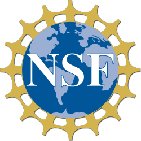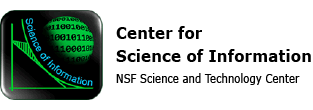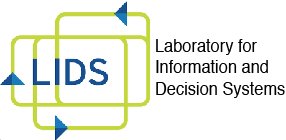NSF Workshop on Low-Latency Wireless Random-Access
This workshop, hosted by the Laboratory for Information and Decision Systems, brings together experts from industry and academia to discuss the challenges and solutions for the problem of multiple-access in wireless communication and Internet-of-Things.
Current radio-access networks (RANs) are designed with the aim of maximizing data-stream throughput for a few active users. The next generation RANs will need to service massive numbers of infrequently communicating sensors (machine-type communication, MTC, or Internet-of-Things). Most present systems employ centralized resource allocation, thus orthogonalizing the access from different users. This solution is not acceptable for the MTC as it relies on a significant control-layer overhead and incurs severe latency. Presently, there is a strong demand for a new solution in both the unlicensed spectrum [low-power wide-area networks (LP-WANs)] and the licensed spectrum (5G).
While the problem of multiple-access (MAC) is classic and a number of well-established solutions exist, the massive machine-type communications pose significant new challenges: (a) a gigantic number of idle (inactive) users; (b) a still large number (hundreds) of active users; (c) short packets; (d) focus on high energy-efficiency (low energy-per-bit). Consequently, the efficiency of the currently available solutions should be contrasted with the fundamental non-asymptotic fundamental limits and new solutions developed. Furthermore, the typical assumption of vanishing overhead of headers (control layers) in network analytic literature, and unbounded blocklength assumption in information theory evidently become grossly inadequate. As another example, the classical information-theoretic model of a K-user MAC fails to capture the random-access nature of the real-world applications, while network-theoretic collision models fail to capture the superposition nature of the real-world physics.
______________________________
Organizer: Yury Polyanskiy
Hosted by the Laboratory for Information and Decision Systems (LIDS)
Program committee: Yury Polyanskiy (LIDS) and Sergio Verdú (Princeton)
Alexander Barg
Professor of ECE, ISR, University of Maryland
Yury Birchenko
CTO & Founder, NWave Technologies
Giuseppe Caire
Professor of EECS, Technical University of Berlin
Mérouane Debbah
Director, Mathematical and Algorithmic Sciences Lab, Huawei
Dariush Divsalar
Fellow, NASA Jet Propulsion Laboratory, Caltech, USA
Giuseppe Durisi
Professor, Chalmers University of Technology, Sweden
Uri Erez
Professor of EE-Systems, Tel-Aviv University, Israel
Christophe Fourtet
Chief Scientist Officer & Co-Founder, SigFox
Albert Guillén i Fabregàs
Research Professor, ICREA and Universitat Pompeu Fabra, Spain
Dongning Guo
Professor of EECS, Northwestern University, USA
Piyush Gupta
Qualcomm
Tobias Koch
Ramón y Cajal Research Fellow, Universidad Carlos III de Madrid, Spain
Victoria Kostina
Assistant Professor of EE, CalTech, USA
Swarun Kumar
Assistant Professor, Carnegie Mellon University
Gianluigi Liva
Institute of Communications and Navigation, German Aerospace Center
Alfonso Martinez
Ramón y Cajal Research Fellow, Universitat Pompeu Fabra, Spain
Krishna Narayanan
Professor of ECE, Texas A&M University
Or Ordentlich
Hebrew University, Israel
Ayfer Özgür
Assistant Professor, Stanford Universty
Henry Pfister
Associate Professor, Department of Electrical and Computer Engineering, Duke University
Yury Polyanskiy
Associate Professor of EECS, MIT, USA
Petar Popovski
Professor, Department of Electronic Systems, Aalborg University, Denmark
Slawomir Stanczak
Prof. Dr.-Ing., Fraunhofer HHI, Germany
Vincent Tan
Assistant Professor of ECE and Math, National University of Singapore
Emre Telatar
Professor, EPFL, Lausanne, Switzerland
Gonzalo Vazquez Vilar
Visiting Professor, Universidad Carlos III de Madrid, Spain
Sergio Verdú
Professor of Electrical Engineering, Princeton University, USA
Wei Yang
Senior Engineer, Qualcomm, USA
Wei Yu
Professor of ECE, University of Toronto, Canada
Peiying Zhu
Huawei Fellow, Canada


































